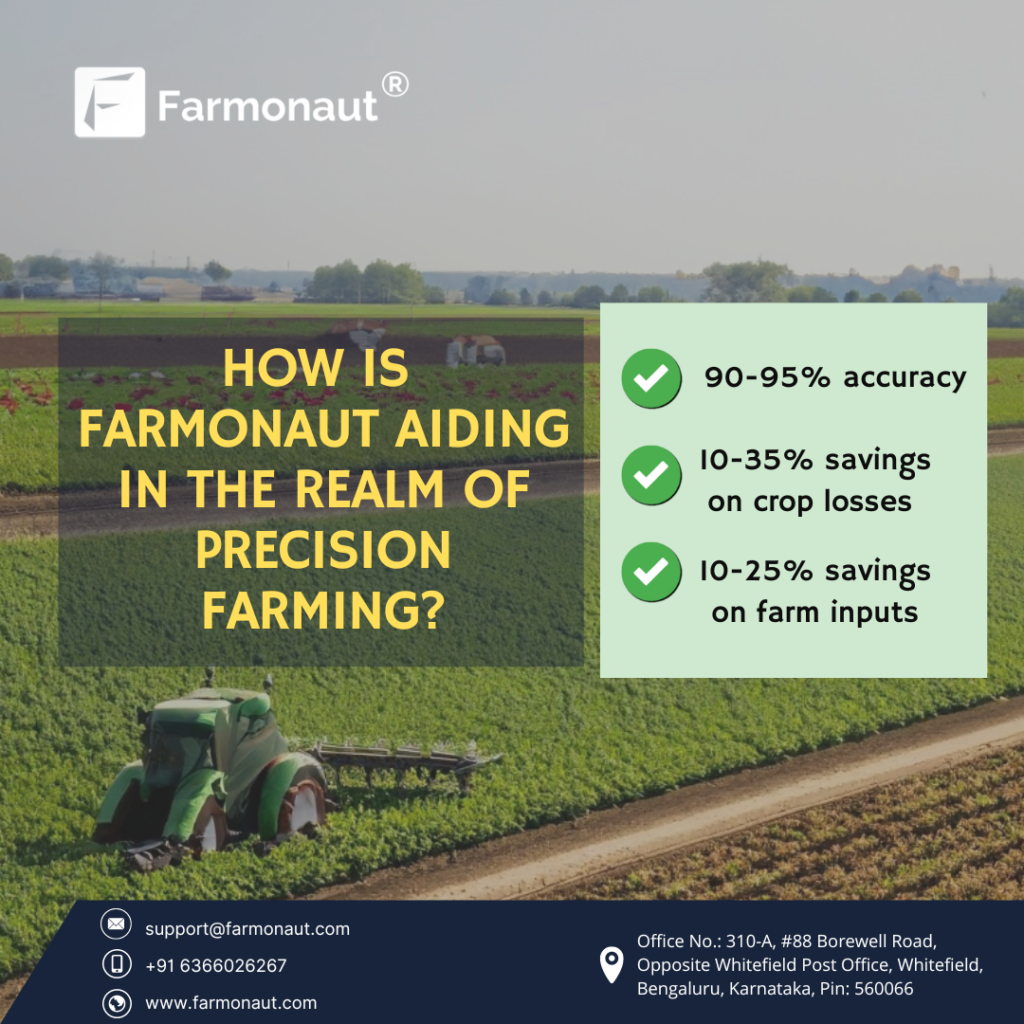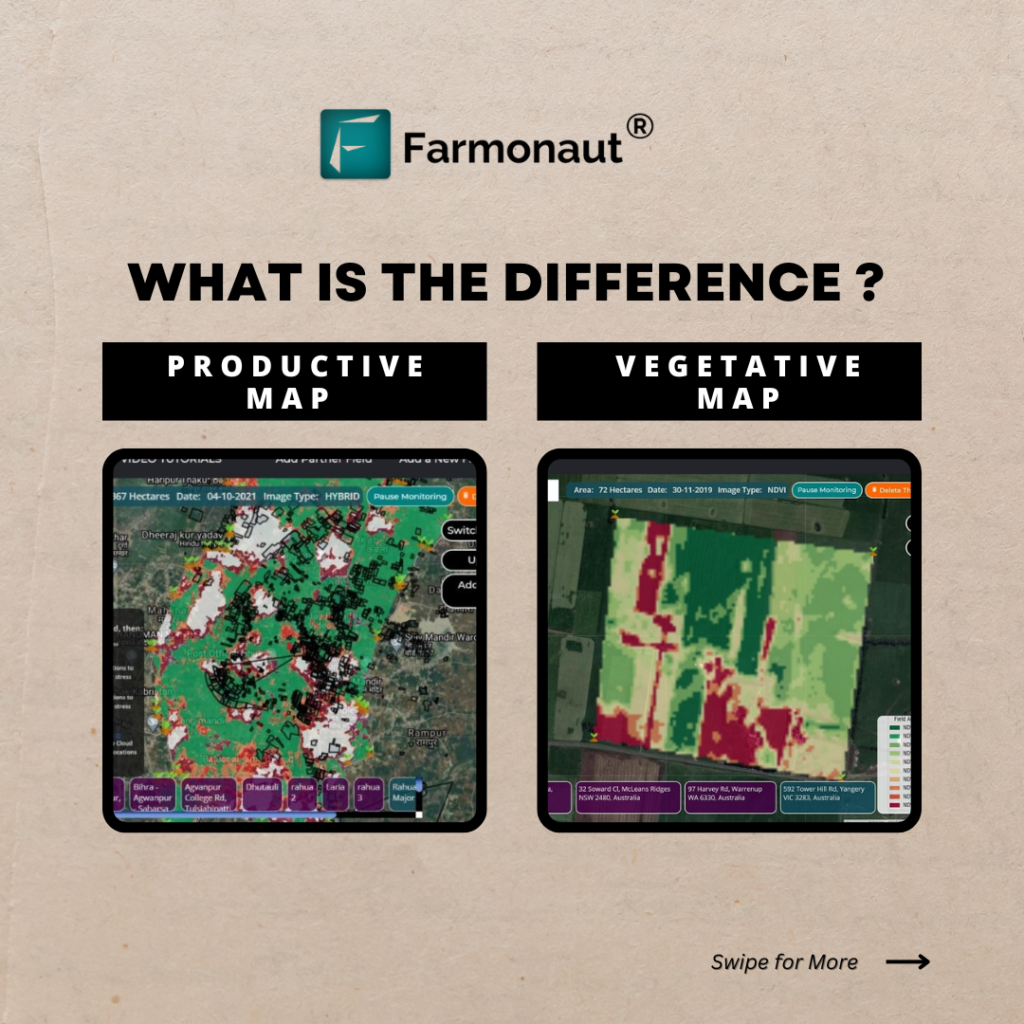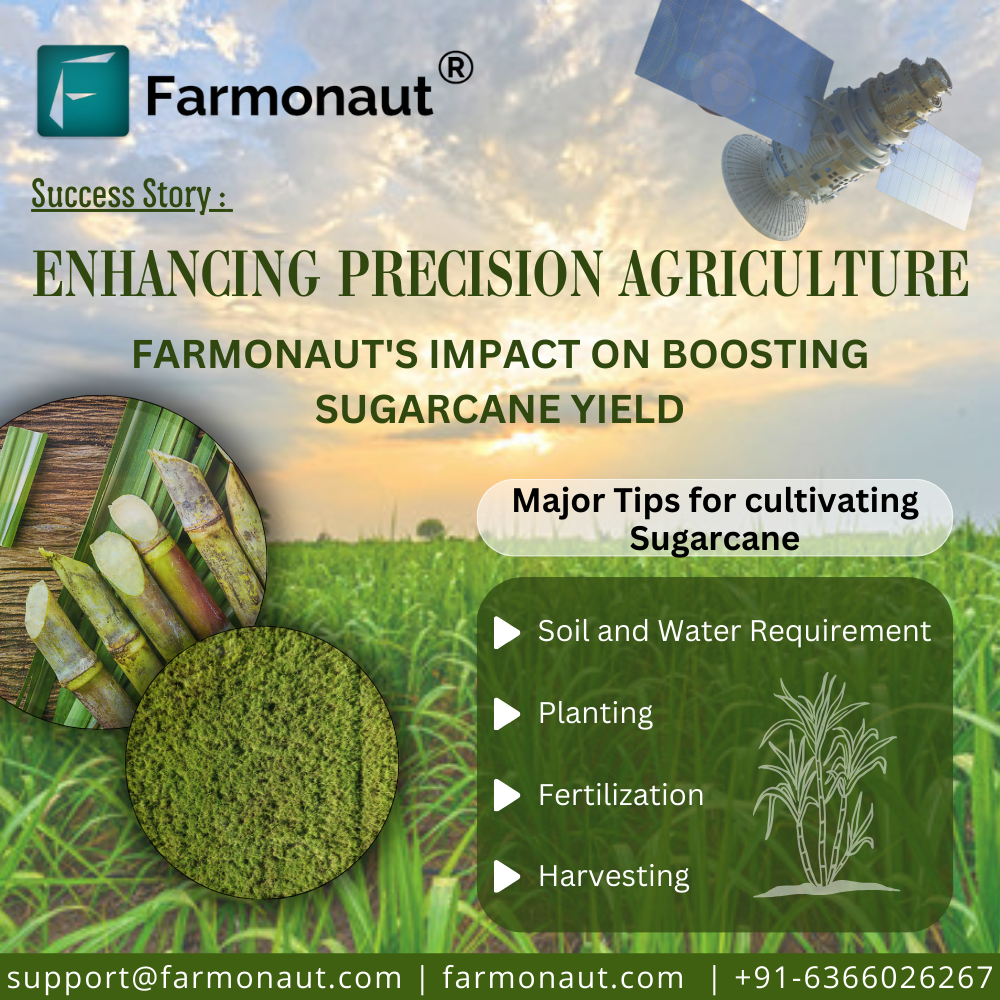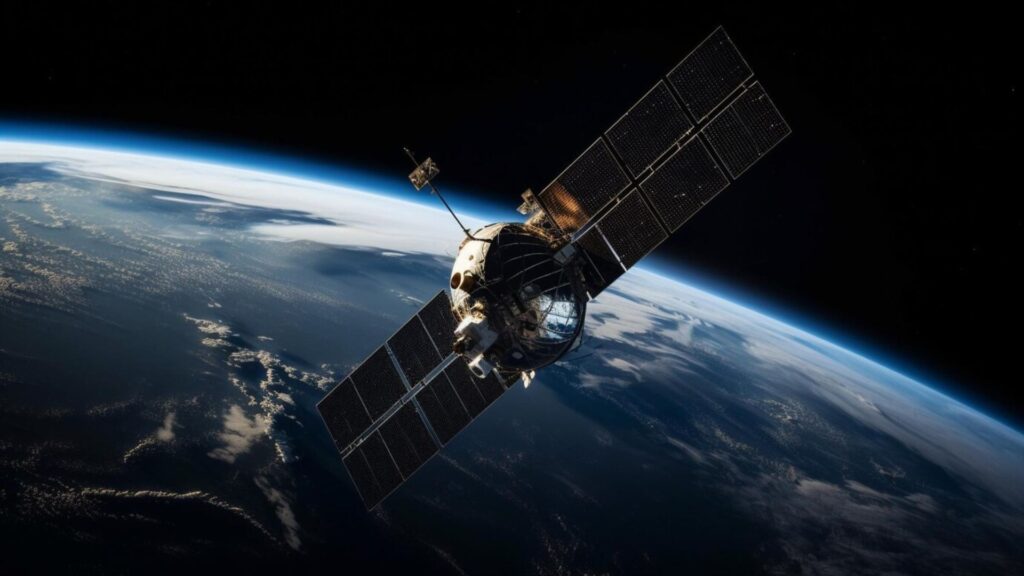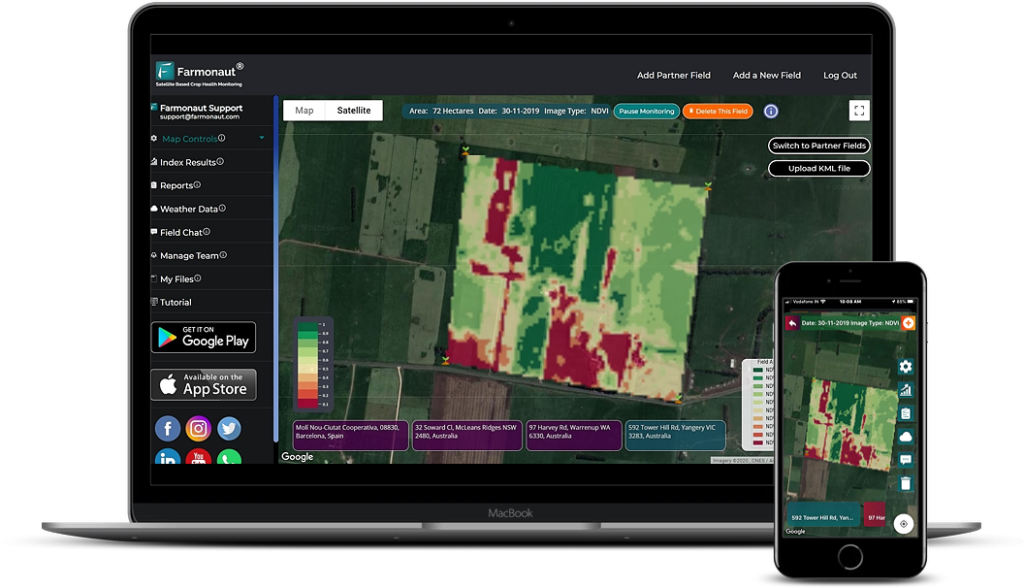Controlling Soft Scale Insects: Protecting Citrus and Other Crops from Coccidae Pests
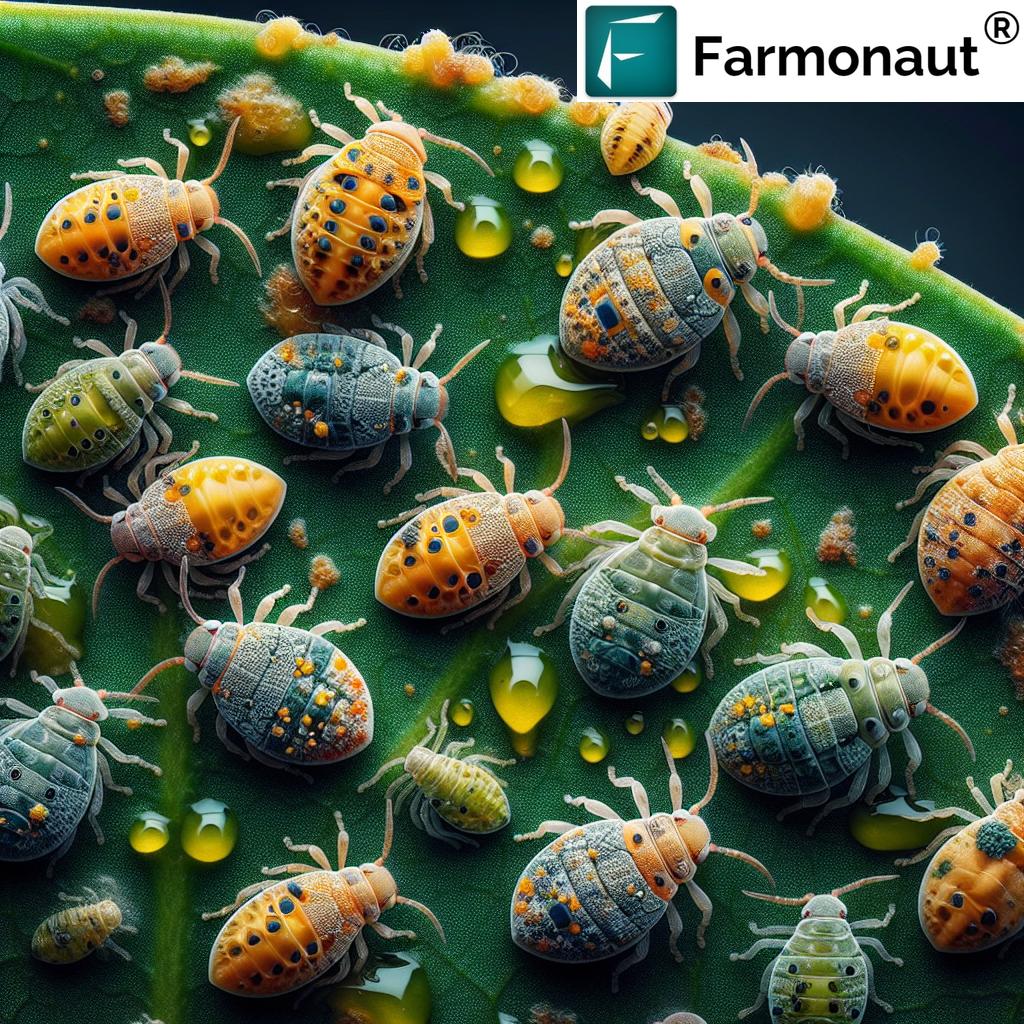
At Farmonaut, we understand the critical importance of protecting crops from pests that can significantly impact yield and quality. Among these pests, soft scale insects of the Coccidae family pose a substantial threat to various crops, particularly citrus and other fruit-bearing plants. In this comprehensive guide, we’ll delve into the world of soft scale insects, their impact on agriculture, and how our advanced satellite-based technology can aid in early detection and effective control.
Understanding Soft Scale Insects
Soft scale insects belong to the Coccidae family, a group of sap-sucking pests that can cause significant damage to a wide range of plants. These insects are known for their oval or rounded bodies, which are typically covered in a waxy coating. Unlike their hard scale counterparts, soft scales have a more pliable protective covering.
Common Soft Scale Species
Several species of soft scale insects are known to infest agricultural crops. Some of the most problematic include:
- Coccus hesperidum (Brown soft scale)
- Coccus floridensis (Florida wax scale)
- Ceroplastes rusci (Fig wax scale)
- Saissetia oleae (Black scale)
- Coccus coffeae (Coffee green scale)
- Protopulvinaria pyriformis (Pyriform scale)
The Impact of Soft Scale Insects on Crops
Soft scale insects can have a devastating effect on various crops, particularly citrus and other fruit-bearing trees. Their feeding habits and lifecycle can lead to several issues:
1. Direct Damage from Feeding
Soft scales use their piercing-sucking mouthparts to extract sap from plant tissues. This feeding activity can occur on various parts of the plant, including:
- Foliage: Leaves may become yellowed, distorted, or fall prematurely
- Twigs: Branches can weaken and die back
- Fruits: Direct feeding can cause blemishes and reduce fruit quality
2. Honeydew Production
As soft scales feed, they excrete a sticky substance called honeydew. This sugary secretion can lead to several secondary problems:
- Sooty mold growth: The honeydew provides an ideal substrate for sooty mold fungi, which can cover leaves and fruits, reducing photosynthesis and fruit marketability
- Attraction of other pests: Ants and other insects are drawn to the sweet honeydew, potentially introducing additional pest problems
3. Transmission of Plant Pathogens
Some soft scale species can act as vectors for plant viruses and other pathogens, further compromising plant health.
Life Cycle of Soft Scale Insects
Understanding the life cycle of soft scale insects is crucial for implementing effective control measures. The typical life cycle includes:
- Egg stage: Females lay eggs beneath their protective covering
- Crawler stage: Newly hatched nymphs (crawlers) move to find suitable feeding sites
- Nymphal stages: Immature scales undergo several molts, gradually increasing in size
- Adult stage: Mature females produce eggs and continue feeding
The duration of this cycle can vary depending on the species and environmental conditions, but it typically takes several weeks to a few months.
Detecting Soft Scale Infestations
Early detection of soft scale infestations is crucial for effective management. Traditional methods of detection include:
- Visual inspection of plant material
- Sticky traps to capture crawlers
- Pheromone traps for certain species
However, these methods can be time-consuming and may miss early-stage infestations, especially in large agricultural operations. This is where Farmonaut’s advanced satellite-based technology comes into play.
Satellite-Based Detection with Farmonaut
Our cutting-edge satellite imagery and AI-powered analysis can detect early signs of crop stress caused by soft scale infestations. Here’s how our system works:
- High-resolution satellite imagery captures multispectral data of your fields
- Our AI algorithms analyze vegetation health indices, such as NDVI (Normalized Difference Vegetation Index)
- Areas of potential infestation are identified based on changes in plant health
- Farmers receive alerts and detailed maps showing areas of concern
This approach allows for rapid, large-scale monitoring of crops, enabling early intervention and targeted treatment.
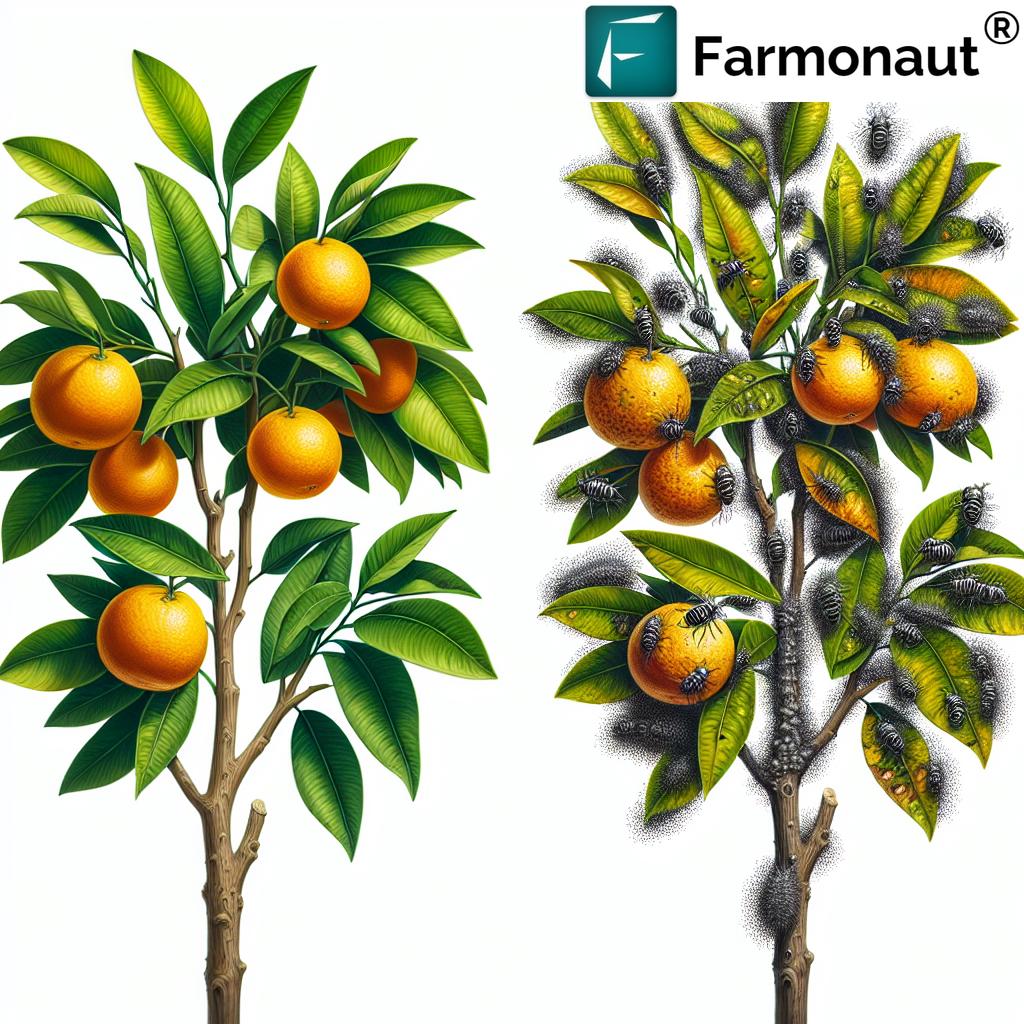
Comparison: Traditional vs. Satellite-Based Detection
| Feature | Traditional Methods | Farmonaut’s Satellite-Based System |
|---|---|---|
| Detection Speed | Slow, labor-intensive | Rapid, automated analysis |
| Accuracy | Variable, depends on inspector’s skill | High, consistent AI-powered analysis |
| Coverage Area | Limited to accessible areas | Entire fields, even remote locations |
| Cost-effectiveness | High labor costs for large areas | Scalable, cost-effective for any size operation |
By leveraging our satellite-based detection system, farmers can identify and address soft scale infestations more efficiently, potentially saving time, resources, and crop yields.
Control Strategies for Soft Scale Insects
Once a soft scale infestation is detected, it’s essential to implement an integrated pest management (IPM) approach. At Farmonaut, we advocate for a combination of cultural, biological, and chemical control methods to effectively manage these pests while minimizing environmental impact.
1. Cultural Control
Cultural practices can help prevent and manage soft scale infestations:
- Proper plant spacing to improve air circulation
- Regular pruning to remove infested twigs and improve plant vigor
- Adequate irrigation and fertilization to promote plant health
- Removal of overwintering sites, such as leaf litter and debris
2. Biological Control
Many natural enemies can help control soft scale populations:
- Parasitic wasps (e.g., Metaphycus, Coccophagus species)
- Predatory beetles (e.g., ladybirds)
- Lacewings and predatory mites
Encouraging these beneficial insects through habitat management and reduced pesticide use can contribute to long-term scale control.
3. Chemical Control
When cultural and biological methods are insufficient, chemical control may be necessary. Options include:
- Horticultural oils: Effective against all life stages, with low environmental impact
- Insecticidal soaps: Target soft-bodied insects while being relatively safe for beneficial insects
- Systemic insecticides: For severe infestations, but should be used judiciously due to potential impacts on pollinators
It’s crucial to time chemical applications correctly, targeting the vulnerable crawler stage when possible. Our Farmonaut platform can help optimize treatment timing by providing real-time data on pest development and environmental conditions.
Leveraging Farmonaut’s Technology for Effective Scale Management
At Farmonaut, we offer a suite of tools to help farmers combat soft scale insects and other agricultural pests effectively:
1. Early Detection with Satellite Imagery
Our advanced satellite monitoring system can detect early signs of crop stress caused by scale insect infestations. By identifying problem areas before they become visible to the naked eye, farmers can take proactive measures to control the pest population.
2. AI-Powered Advisory System
Our Jeevn AI advisory system analyzes satellite data, weather patterns, and pest life cycles to provide personalized recommendations for scale insect management. This includes optimal timing for control measures and suggestions for integrated pest management strategies.
3. Real-Time Weather Data
Access to accurate, field-specific weather forecasts helps farmers plan pest control activities more effectively. Our platform provides up-to-date weather information, including temperature, humidity, and precipitation forecasts, which are crucial for timing insecticide applications and predicting pest development.
4. Historical Data Analysis
By analyzing historical satellite imagery and pest occurrence data, we can help identify patterns and predict potential hotspots for scale insect infestations. This information allows farmers to implement preventive measures in high-risk areas.
5. Mobile App Access
Our user-friendly mobile app allows farmers to access all these features on-the-go, ensuring they have the latest information and recommendations at their fingertips. The app is available for both Android and iOS devices.
Case Study: Citrus Grove Management
To illustrate the effectiveness of our approach, let’s consider a hypothetical case study of a citrus grove facing a soft scale infestation:
A 100-hectare citrus orchard in Florida was experiencing declining yields and fruit quality due to an unidentified issue. Using Farmonaut’s satellite monitoring system, the farm manager detected areas of stress in the orchard before any visible symptoms appeared. Our AI analysis suggested a potential soft scale infestation, likely Coccus hesperidum.
Armed with this early detection, the farm implemented the following steps:
- Targeted scouting of the affected areas confirmed the presence of brown soft scale
- Immediate pruning and removal of heavily infested twigs
- Release of parasitic wasps in the affected areas to boost biological control
- Application of horticultural oil to the most severely infested trees, timed to target the crawler stage as advised by our AI system
- Ongoing monitoring using Farmonaut’s satellite imagery to track the effectiveness of the control measures
As a result of this integrated approach and early intervention, the farm was able to control the scale infestation with minimal use of chemical insecticides. The quick response prevented widespread damage, and crop yields remained stable. The farm manager estimated that early detection and targeted treatment saved approximately 15% of the potential crop loss that would have occurred without intervention.
Future Developments in Scale Insect Management
At Farmonaut, we’re constantly working to improve our technology and provide even more effective solutions for pest management. Some areas of ongoing research and development include:
- Enhanced AI algorithms for species-specific pest detection
- Integration of ground-based sensors with satellite data for more precise monitoring
- Development of predictive models for pest outbreaks based on climate change scenarios
- Collaboration with entomologists to refine our understanding of soft scale biology and behavior
By staying at the forefront of agricultural technology, we aim to provide farmers with the most advanced tools for managing soft scale insects and other crop pests.
Conclusion
Soft scale insects pose a significant threat to citrus and other valuable crops worldwide. However, with early detection, integrated pest management strategies, and the power of satellite-based monitoring, farmers can effectively control these pests while minimizing environmental impact and maximizing crop yields.
At Farmonaut, we’re committed to empowering farmers with the tools and knowledge they need to combat soft scale insects and other agricultural challenges. By combining cutting-edge technology with agricultural expertise, we’re helping to shape the future of sustainable and productive farming.
To learn more about how Farmonaut can help you manage soft scale insects and other crop pests, visit our website or contact our team of agricultural experts today.
FAQs about Soft Scale Insects and Farmonaut’s Solutions
-
Q: How can I tell if my crops are infested with soft scale insects?
A: Look for symptoms such as yellowing leaves, sticky honeydew on foliage, and the presence of small, oval insects on twigs and leaves. Farmonaut’s satellite monitoring can also detect early signs of infestation before visible symptoms appear. -
Q: Are soft scale insects harmful to all types of crops?
A: While soft scales can affect many plant species, they are particularly problematic for citrus and other fruit trees. However, they can also infest ornamental plants and some vegetable crops. -
Q: How often should I monitor my fields for soft scale insects?
A: Regular monitoring is crucial. With Farmonaut’s satellite-based system, we provide weekly updates on crop health, allowing for continuous monitoring without the need for constant manual inspections. -
Q: Can Farmonaut’s technology distinguish between damage caused by soft scales and other pests?
A: While our satellite imagery can detect general crop stress, our AI system analyzes patterns and symptoms to suggest likely causes. However, ground-truthing is still important for definitive pest identification. -
Q: How does Farmonaut’s weather data help in managing soft scale insects?
A: Our precise weather forecasts help in timing control measures, such as insecticide applications, and predicting pest development rates, which are temperature-dependent. -
Q: Is Farmonaut’s technology suitable for small-scale farmers?
A: Yes, our platform is scalable and can be used by farmers with operations of any size. We offer different subscription tiers to meet various needs and budgets. -
Q: How can I access Farmonaut’s pest management tools?
A: You can access our platform through our web application or mobile app. Visit our website to learn more about getting started. -
Q: Does Farmonaut provide support for implementing pest control strategies?
A: Yes, our AI advisory system provides personalized recommendations for pest management. Additionally, our team of agricultural experts is available for consultation on complex issues. -
Q: Can Farmonaut’s technology help with organic farming practices?
A: Absolutely. Our system can help identify pest issues early, allowing for timely implementation of organic control methods such as biological control and cultural practices. -
Q: How does Farmonaut stay updated on the latest pest management research?
A: We collaborate with agricultural research institutions and constantly update our algorithms based on the latest scientific findings in pest management and crop protection.
Subscribe to Farmonaut
Ready to take your crop protection to the next level? Subscribe to Farmonaut today and gain access to our advanced satellite monitoring and pest management tools.
For more information on our API services for developers, please visit our API documentation page.


